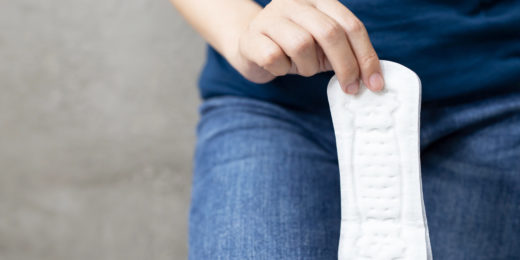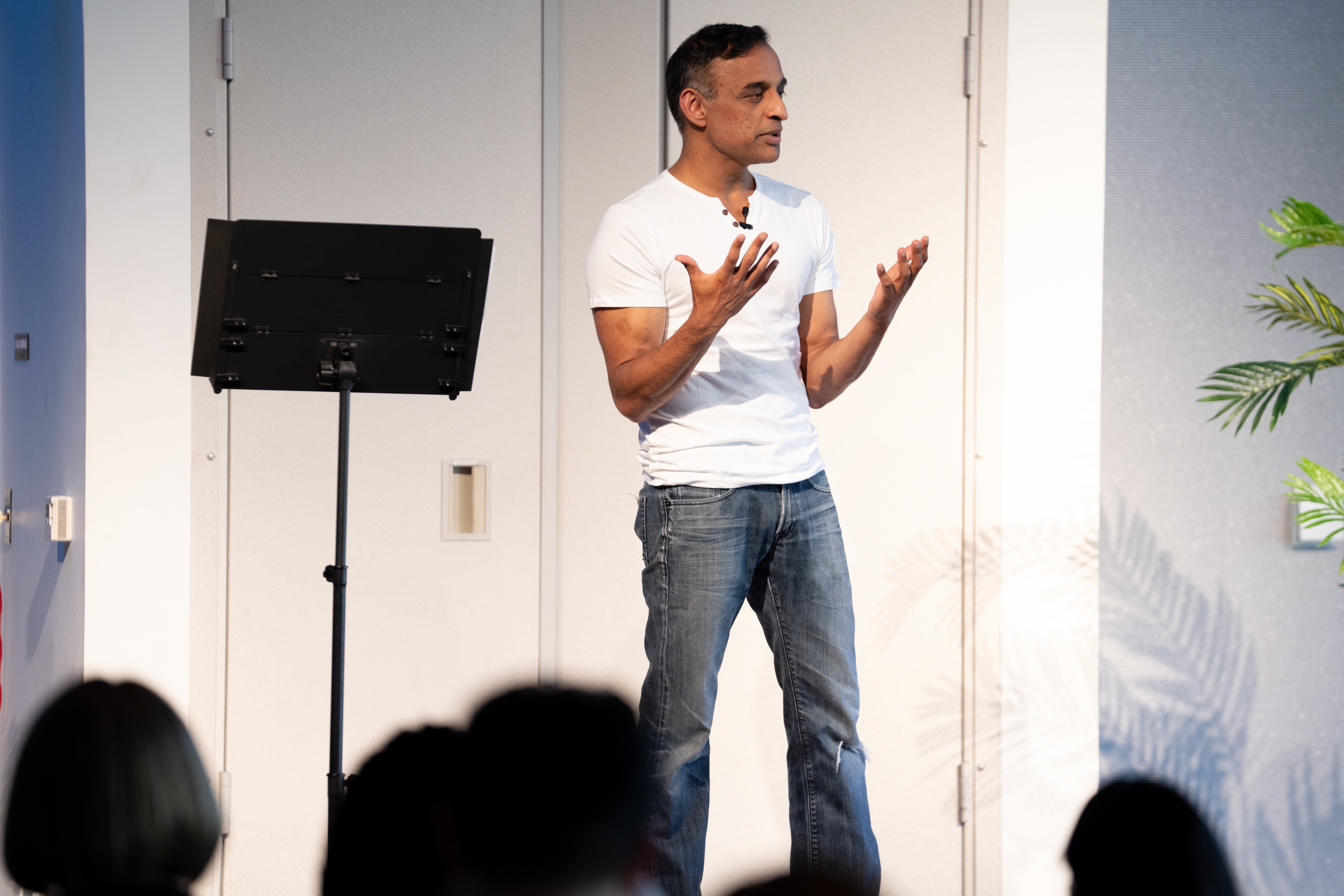Many of Nichole Tyson's young patients are struggling with problems related to their periods.
Tyson, MD, clinical professor of obstetrics and gynecology at Stanford Medicine, specializes in treating pediatric and adolescent patients. She often works with girls and young women seeking help for menstrual problems - including painful, irregular or heavy periods.
Tyson and two of her Stanford Medicine colleagues recently wrote an editorial in BMJ Sexual & Reproductive Health about the current state of menstruation research. Like many areas of women's health, it remains under-studied, she said.
Tyson shared her insights into what teens should know about their periods, how doctors are working to improve how they communicate with patients about menstruation, and what still needs to change.
What do teens need to know about normal menstruation, either from their parents or physicians?
We talk to teenagers about the parameters of healthy periods. The average age for a first period is about 12½ years old, and most adolescents have periods every 21-45 days. Periods should last seven days or fewer. If they last longer, teens should check with their doctor to make sure there isn't a medical problem. In teens, the menstrual cycle can be a bit shorter or longer than for adults, but the time between periods shouldn't be very prolonged. You shouldn't be getting a period only every 6 or 8 months, for example.
One of the most important things any teen can do is track her period, either on a basic calendar or a menstrual app like Clue, Flo or others. There are also free period calendars on the internet.
I encourage doctors to focus on the patient's experience with menstruation. Doctors used to try to figure out how much blood patients were losing to quantify irregularity. We're moving away from that. You don't have to prove to me, as a human with a uterus, that your bleeding is abnormal if your experience tells you that it is. If your period interferes with your physical, social or emotional life, that's what matters. We can help.
What common period-related problems do you see in teenage patients, and how can you help?
There are three classic ones. It's common for me to see a patient who got her first period when she was 12; she's now 13 and hasn't had any periods since. She's also experiencing terrible acne and struggling with a lot of upper lip or facial hair. Those are big indicators of being at risk for polycystic ovary syndrome. It's tricky to diagnose in teenagers because some symptoms - skipping periods, bad acne, being hairier in places they don't want to be - are also part of puberty for many people. Identifying and treating PCOS can help improve a patient's acne and regulate her menstrual cycles so she doesn't skip periods and then get really heavy periods out of the blue. We also monitor and help improve patients' future health, since other conditions can go along with PCOS, including diabetes, metabolic syndrome, weight gain and mood and sleep disorders.
A second common scenario is a teen saying "My periods last eight or nine days; they're so long and heavy," and the patient's mom says "She's coming home exhausted. We've started giving her iron supplements but we don't know what's going on." Among girls who, at the beginning of menstruation, have very heavy periods, about 30% have bleeding disorders; the most common is Von Willebrand disease. This affects blood clotting, and can be linked to problems such as joint pain from damage caused by bleeding into the joints. It's important to diagnose so we can improve the heavy bleeding, iron deficiency, anemia and fatigue these adolescents are experiencing. Knowing that a patient has a bleeding disorder can also be lifesaving if that person later needs surgery or is injured in a car accident, for example.
A third common problem is dysmenorrhea, or period pain. Patients are awakened in the middle of the night, they have back pain, they're taking tons of Motrin and nothing helps. This is very common, and it often takes years for patients to get properly diagnosed and treated. Any pain that's severe enough to disrupt your life is worth talking to your doctor about. It can be primary dysmenorrhea, related to the uterus releasing prostaglandins during menstruation, or there can be secondary causes, such as endometriosis, which occurs when the endometrium (uterine lining) grows outside the uterus. Teenagers can have endometriosis. Often, early stage endometriosis is the most active and painful.
Doctors can effectively evaluate these patients by taking detailed patient histories, conducting a physical exam and, sometimes, running certain lab tests and evaluations to diagnose what's happening. To treat these conditions, we frequently use hormonal birth control, which can help lighten and regulate -- or allow patients to safely skip -- periods and stop the pain. It's a giant game-changer.
What myths do you encounter around menstruation?
Many people who menstruate still feel like they have to accept the effects of heavy blood loss or painful periods as normal. They show up in the emergency room, from 11 years old to 61 years old, with hemoglobin levels and iron stores that are astoundingly low. They're living their lives adapting to severe anemia, and it's only a breaking point -- they fainted in the shower, or a 40-year-old woman has a heart attack -- that brings them into the hospital for evaluation. It's hard to continue to see that, as an OBGYN, when we have so many ways to help teens and adults.
The idea that "period pain is normal; just deal with it" is also pervasive. I hear this from patients almost daily. But I've had painful periods and I am a parent of two daughters and I want the world to be better for them. We have safe and effective treatments that truly improve lives. We don't have to just deal with it.
I hear myths about hormonal birth control, too, like "You're going to get fat," or "Birth control causes acne." (It actually helps resolve acne.) Or, "You won't be able to get pregnant later," "It's going to make you want to have sex and get pregnant" or "It causes cancer." In fact, none of these are true. We have great studies over 60 years now showing that people who use hormonal birth control when they're young probably live a little longer than people who don't because they experience so much ovarian and uterine cancer prevention.
Can you talk about the hidden costs of menstruation, AKA, the 'pink tax'?
Feminine hygiene products carry such a financial burden for people who menstruate. A 2019 study of low-income women in St. Louis, Missouri found that 64% of these women had been unable to afford menstrual products at some point in the last year and 21% experienced this every month.
That's not talked about enough, and we don't do enough to help support people who have periods. Several U.S. states, including California, have stopped charging sales tax on feminine hygiene products, but about 20 states still tax these essential items. A few states have laws requiring period products to be provided for free in schools and homeless shelters. There has been some lobbying to have menstrual products covered by health insurance under the Affordable Care Act, but this hasn't happened yet.
I talk with my patients about cost savings as one benefit of hormonal birth control: You can suppress periods and don't need all these products. Over time, reusable products such as menstrual cups and discs are also less expensive than pads or tampons. But these aren't accessible or comfortable to every person.
Another category of hidden cost, though this one is not financial, is how menstruation affects those struggling with other things: people with disabilities, people in wheelchairs, autistic people, kids with gender dysphoria. As physicians, we can make small suggestions for them that will make a big life difference: Do you want period panties? Do you want to suppress your period? In some cases, these young people have been missing school because their periods are so disruptive for them. There are options to get them back in their community, and engaged in life, where they want to be.
How can parents and doctors communicate in a positive way with teens about menstruation?
We should be talking about having beautiful, wonderful, healthy bodies. There are a lot of women who do feel good getting their periods, and having a period is a sign of good health. We can encourage this health focused and empowering dialogue. But for those who feel sick with periods, miss school and activities, and have their health impacted, we can offer help, as there are modern, safe and well-studied treatments.
Also, I talk to young physicians I'm training about how patients may not always want to choose what we're offering to help manage their periods. We need to listen to them. Sometimes that is enough. We can also say "We're here for you in the future if you want to try something different." Menstruating people have decades of periods and so we can always pivot and try different options for different phases of our lives.
In many parts of the world, periods are still very stigmatized. People are shamed; they have poor hygiene resources and lack access to safe restrooms and clean water. There's lots of work to do globally in terms of providing resources, education and outreach to help improve this aspect of people's lives.
Photo by Studio KIVI






